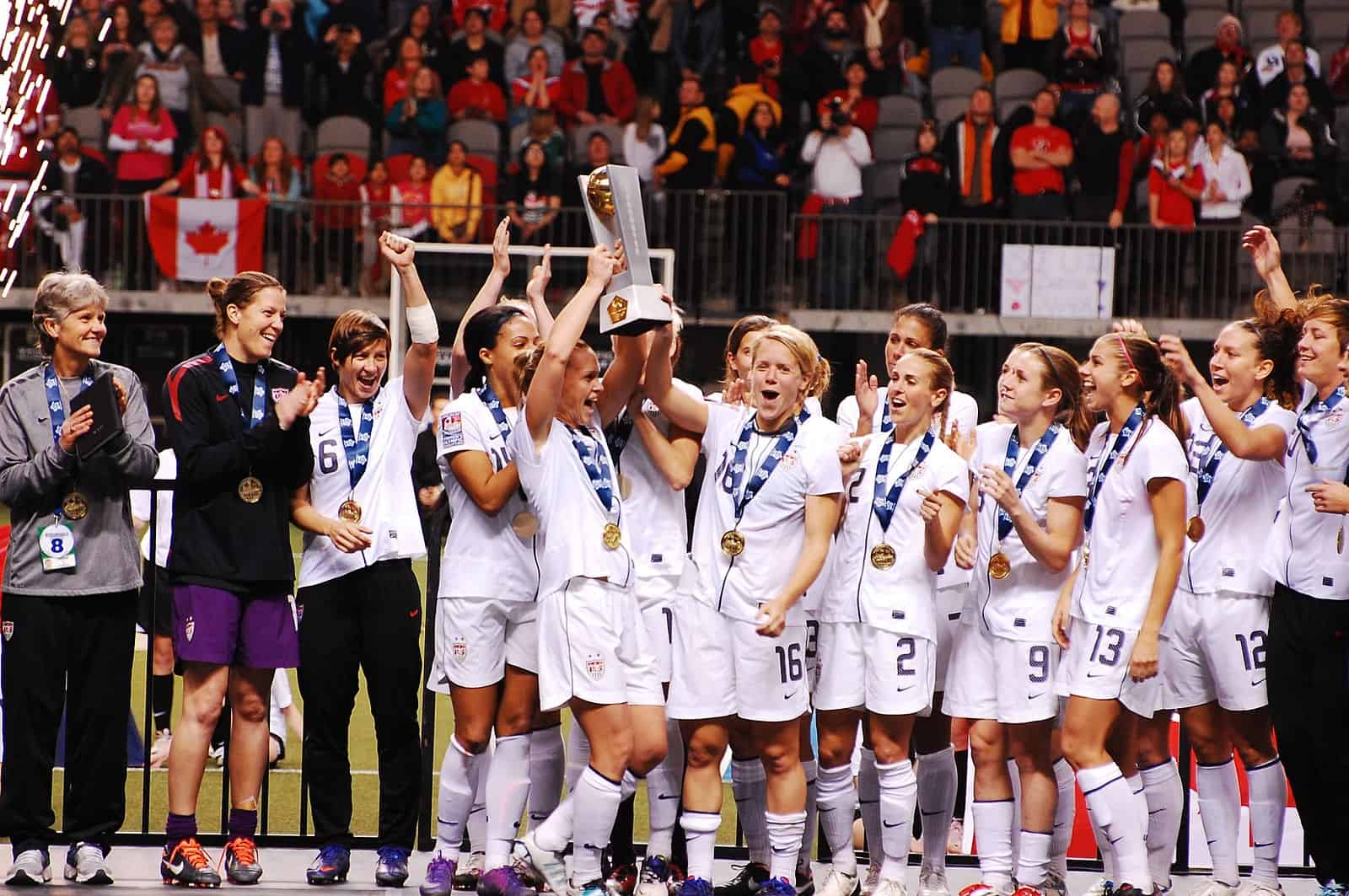
Alex Blutman is a student at Harvard Law School and a member of the Labor and Employment Lab.
The United States Soccer Federation has agreed to new, landmark collective bargaining agreements with the unions representing the men’s and women’s national soccer teams. The CBAs, which will run through the end of 2028, end a contentious period of dispute over remuneration with the women’s team, which had argued in a well-publicized lawsuit that they were deprived of equal pay in comparison to their male peers.
In 2016, a handful of the top women’s team players filed a wage discrimination complaint with the EEOC, launching what would become a factious six-year-long legal fight during which the women fired their union chief and reorganized their players’ association, the team won a World Cup, and then-U.S. Soccer President Carlos Cordeiro resigned after lawyers for the federation argued in a court filing that players on the men’s team were scientifically superior to the women. When their equal pay claim came before Judge R. Gary Klausner, however, the district court granted U.S. Soccer’s motion for summary judgment, finding that the women’s team had actually earned more money than the men’s team during the period in question and that pay disparities owed to different compensation structures as set out in the separately bargained for contracts negotiated by the men’s and women’s team’s unions.
While the players intended to appeal, it was ultimately not necessary—in February of this year, the USWNT reached a $24 million settlement with the federation, recouping more than a third of the $66.7 million the team was seeking in back pay. Importantly, U.S. Soccer also committed to providing an equal rate of pay going forward for the men’s and women’s national teams in friendlies and tournaments, including the World Cup. The distribution of FIFA prize money was long a sticking point in discussions over compensation. The prize pool for the men’s tournament greatly exceeds that for the women ($400 million compared to $60 million in the two upcoming editions of the World Cup, for example), and the federation distributed the shares it received to its two national teams in proportion to those sums.
After the new CBAs ratified today, that is no longer the case. U.S. Soccer will pool the unequal payments it receives from FIFA and split that money equally among members of both teams. Referring to this groundbreaking provision, U.S. Soccer President Cindy Parlow Cone said, “No other country has ever done this.” The agreements also equalize other terms of pay, providing for identical performance-based bonuses for games and competitions and identical commercial and ticket revenue sharing. Players on both teams will receive $18,000 for games won in most matches and as much as $24,000 for wins at certain major tournaments, making U.S. soccer members some of the highest-paid national team players in the world.









Daily News & Commentary
Start your day with our roundup of the latest labor developments. See all
December 22
Worker-friendly legislation enacted in New York; UW Professor wins free speech case; Trucking company ordered to pay $23 million to Teamsters.
December 21
Argentine unions march against labor law reform; WNBA players vote to authorize a strike; and the NLRB prepares to clear its backlog.
December 19
Labor law professors file an amici curiae and the NLRB regains quorum.
December 18
New Jersey adopts disparate impact rules; Teamsters oppose railroad merger; court pauses more shutdown layoffs.
December 17
The TSA suspends a labor union representing 47,000 officers for a second time; the Trump administration seeks to recruit over 1,000 artificial intelligence experts to the federal workforce; and the New York Times reports on the tumultuous changes that U.S. labor relations has seen over the past year.
December 16
Second Circuit affirms dismissal of former collegiate athletes’ antitrust suit; UPS will invest $120 million in truck-unloading robots; Sharon Block argues there are reasons for optimism about labor’s future.